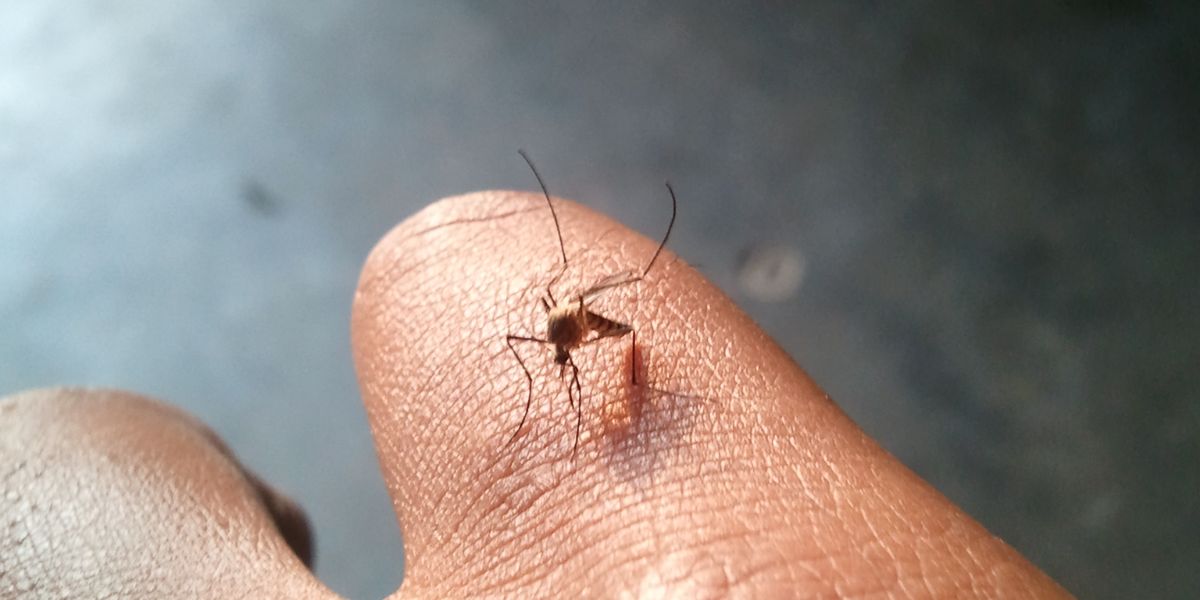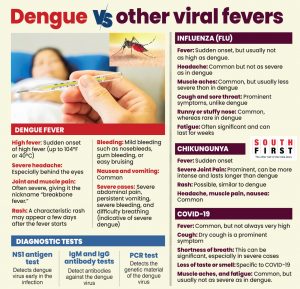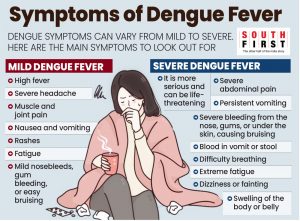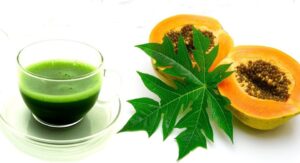Published Jul 12, 2024 | 7:00 AM ⚊ Updated Nov 26, 2024 | 2:34 PM

Representative image (Creative Commons)
Did you know that trying alternative treatments for Dengue fever, a mosquito-borne viral infection, can lead to severe health complications? Dr. Vijayalakshmi Balakrishna, a renowned senior consultant and Head of Infectious Diseases at SIMS Hospitals Chennai, warns people to be cautious of alternative treatment options for dengue fever.
In a webinar with South First discussing the rise in dengue cases across Southern states, she stated, “One of the biggest problems we have noticed across India is people opting for quick-fix alternative medicines. In the last two to three years, especially during this season, we have seen many middle-aged individuals coming in with kidney injuries, liver injuries, and dehydration.”
Despite several warnings and information by doctors on how alternative therapies for dengue do not work, people tend to use some of these common alternative medications. They include papaya leaf extract, which is believed to boost platelet count, although scientific evidence supporting its efficacy is not seen and only anecdotal experiences are shared on social media.
Speaking about the use of papaya leaf extracts or papaya seed extracts, Dr Arvind Canchi, renowned consultant nephrologist and transplant physician from Trustwell Hospitals in Bengaluru said, “There is no scientific basis for use of papaya seeds or juice in patients with dengue. There is a lot of accumulated WhatsApp literature which seems to suggest that eating papaya leaves, juice, seeds may improve platelet count but there is no scientific studies to prove the same,” he explained.
Meanwhile the other alternates that are used by people are Giloy juice or in tablet form to improve immunity and combat symptoms of dengue. The other alternative is drinking kashayams (herbal decoctions) which is a concoction made from various ayurvedic herbs to alleviate symptoms. Some people turn to homeopathic remedies for relief, though there is no scientific consensus on their effectiveness for dengue. Few of them also drink neem juice or take it in the form of tablets or decoctions to boost immunity due to its supposed anti-inflammatory properties.
However, doctors clearly clarify that there is no scientific data to prove the benefits of these on human health during dengue fever.
Dr Vijayalakshmi warns that while these alternative treatments are popular, especially on social media, they are not scientifically proven to cure dengue and may carry risks.
Warning that proper medical treatment and consultation with healthcare professionals are crucial for managing dengue fever effectively, she explains that people often take some kashayam or other remedies, vomit excessively, and return with severe dehydration and kidney injury. If you have dengue, the only solution is proper hydration.
“Papaya leaves are very bitter, and when people make a soup from them, they often vomit and come back dehydrated. Some of these medicines are touted as effective, but we don’t know which ones are nephrotoxic,” D Vijayalakshmi adds.
While generally the dengue virus itself is not nephrotoxic, Dr Vijayalakshmi says that over the last two years, she has been seeing patients coming in with kidney injuries after dengue. The doctor says that when the patients are questioned, they do confess to having taken some kind of alternate medicine. She says, “We don’t know which one is damaging people’s organs but I am seeing that there is damage to liver, kidneys being seen especially in middle-aged to elderly individuals during dengue fever.”
Approximately 70-80 percent of those infected exhibit no symptoms or only a mild fever, while others may develop more severe signs.
Symptomatic individuals typically experience symptoms 4 to 7 days after being bitten, which can include high fever, severe headache, nausea, vomiting, rash, and muscle and joint pain.
In rare cases, as the fever subsides, the illness can progress to dengue hemorrhagic fever, characterised by bleeding, severe abdominal pain, vomiting blood, respiratory distress, and organ impairment. This stage is critical and can be fatal without proper medical intervention.
Early treatment focuses on oral rehydration therapy and acetaminophen for fever or pain, while aspirin and NSAIDs like ibuprofen should be avoided due to the increased risk of bleeding. If the condition worsens, immediate medical care is essential to lower the risk of death.

Does drinking papaya leaf juice or taking papaya leaf extract help dengue patients in increasing platelet count? (Wikimedia Commons)
Preventing mosquito bites through protective clothing, mosquito nets, and effective repellents, along with reducing mosquito habitats, is vital for controlling the spread of dengue fever.
“If you have a fever, double your usual fluid intake and ensure you pass adequate urine. In dengue, capillary leak causes water to get removed from the blood, thickening it, which can lower platelet count and increase the risk of bleeding. This can be avoided by keeping the vessels filled. If you can’t do this due to severe vomiting, diarrhea, or belly pain, that’s a warning sign. Do not wait overnight,” she explains.
Meanwhile, she adds that for dengue, there is no magic pill; the body will take care of itself.
“As long as hydration is maintained, almost 99 percent of cases don’t even require transfusion. Problems occur when patients come with bleeding or organ injury, which happens if they are picked up late or have used various alternative treatments without proper hydration, increasing the risk of shock and bleeding,” she explains.
Giving a clear warning to the public, Dr Vijayalakshmi says, “What we don’t want to happen is for dengue patients to reach the hospital very late. Bleeding or rash is not something you wait for.”
Speaking on when to reach hospital she says, “If your fluid intake is difficult and urine output decreases, that should be an alert for you to go to the hospital. If there is a leak, there will be belly pain and reduced water intake, signaling the need to seek medical help.”
Dr Vijayalakshmi clarifies that most viral infections will subside in two or three days with upper respiratory infection kind of symptoms. “However, If you have increased cough and breathlessness, then you should be worried.”
Meanwhile those with “Uncontrolled diabetes, hypertension, cardiac problems, renal disease, HIV, cancer, and autoimmune conditions which make patients high-risk, should seek immediate help if they have a fever for more than 48 hours. Early diagnosis is crucial.”
However, she adds that one advantage with dengue fever is that the chances of capillary leak in immunocompromised patients is much lesser and hence they rarely experience severe shock, which is why mortality is higher among the younger generation compared to immunocompromised adults.
She says there is a tendency in people to work on war mode to bring their fever (temperature) down. Dr Vijayalakshmi says that fever is a body’s way to express that there is something wrong but that doesn’t mean one must take NSAIDs or steroids to stop the fever.
In case of dengue fever, Dr Vijayalashmi says, “Patients should not take any NSAIDs to stop their fever. It’s unnecessary to bring the temperature to normal. It’s ok to have a fever of 100 or 101 degrees. Don’t go overboard trying to lower the fever. Viral illnesses will cause fever; just take paracetamol and maintain hydration,” she adds.
She says, the problem arises when people obsess over the fever and start taking NSAIDs and steroids, which increase the risk of capillary leak and complications. Regular paracetamol, gastric tablets, and hydration are all that is needed.
In a day, adults can take up to 3 to 4 grams per day of paracetamol. “With any fever, focus on hydration. Take fluids, paracetamol, and wait a few days. If the fever persists, return for basic evaluation, CBC, and dengue test. If an elderly person has high fever, confusion, or difficulty sitting up or walking, they should come to the hospital.”
(Edited by Neena)
(South First is now on WhatsApp and Telegram)

